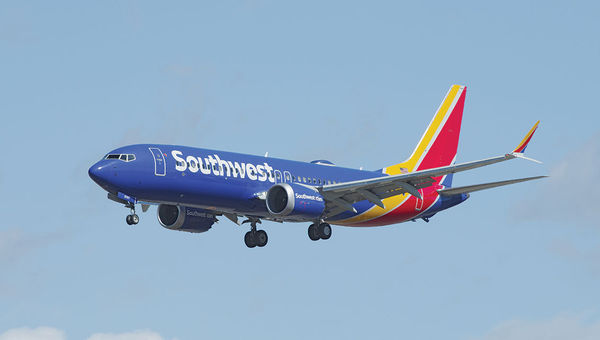The return to service of the Boeing 737 Max, consolidation of European carriers and concerns about aircraft emissions are likely to be among the major issues making headlines in the commercial aviation industry in 2020.
It's still unclear when the Max, which has been grounded worldwide since last March, will get approval from the FAA and other regulatory agencies around the world to return to the skies.
American and Southwest recently canceled all Max flights into April, while United had the aircraft returning to its schedule in early March as of press time. But the airlines are only guessing. Several times previously, those carriers have pushed the Max return timeline back, and the FAA still isn't setting a target date for lifting the ban.
"At this point, you kind of feel a little brazen making any predictions," said industry analyst Seth Kaplan. "But if you ask me, I'm going to agree that, yes, it's probably going to be flying again in the first half of 2020."
When the Max does return, airlines can expect to encounter passengers who are afraid to fly on them. In fact, some carriers have already said that they won't charge the customary rebooking fees to customers who are slated to travel on a Max but are afraid to do so.
"I think airlines will have trouble filling the aircraft for a few months," said Judson Rollins, founder of New Zealand-based consultancy Propel Aviation Solutions.
The return of the Max will create other challenges for airlines as they tailor their networks in an effort to manage the sudden leap in seat capacity.

One of Southwest's Boeing 737 Max jets.
"It's going to take a lot of planning behind the scenes, but I do think once the Max reentry starts, it will be smooth," Kaplan said.
Industry observers will also be watching the European market carefully in 2020 to see if a consolidation trend that began in 2017 continues. This year saw the demise of several European carriers, among them Thomas Cook, Wow, Germania and XL Airways. In addition, the U.K.'s Flybe was subsumed by Virgin Atlantic.
Still, noted John Strickland, director of London-based JLS Consulting, the largest European airline groups comprise a far lower share of that market than the top U.S. carriers do here. He expects more European consolidation to come.
Two airlines that Strickland will be watching in 2020 are Air Europa and Alitalia. The former has already signed a sales agreement with IAG, the parent of British Airways and Iberia. But that transaction, which would give Iberia a dominant position in the transatlantic Madrid market, must be approved by regulators.
Meanwhile, Alitalia has been insolvent for two-and-a-half years, and repeated attempts by the Italian government to facilitate the creation of a new ownership consortium have thus far failed.
While it is likely there will be more consolidation of the European air market in 2020, it's all but certain that airlines will continue to feel pressure related to their greenhouse emissions.
This year brought the rapid rise of the flight-shaming movement led by teen Swedish climate activist and Time's Person of the Year Greta Thunberg, which has already led to a decline in flying in Sweden. In addition, Germany and France have laid out plans for new and increased ecotaxes on airlines.
Carriers have countered by upping their own climate initiatives. Britain's Easyjet, for example, recently announced that it has become the first airline to offset emissions on all flights.
Strickland said he expects more green initiatives from airlines in 2020. Meanwhile, Kaplan predicted that U.S. carriers won't face as much pressure as their counterparts in Europe, due in part to limited rail infrastructure here.
"There just aren't that many airline trips in America that could be replaced by something more environmentally sound," he said.